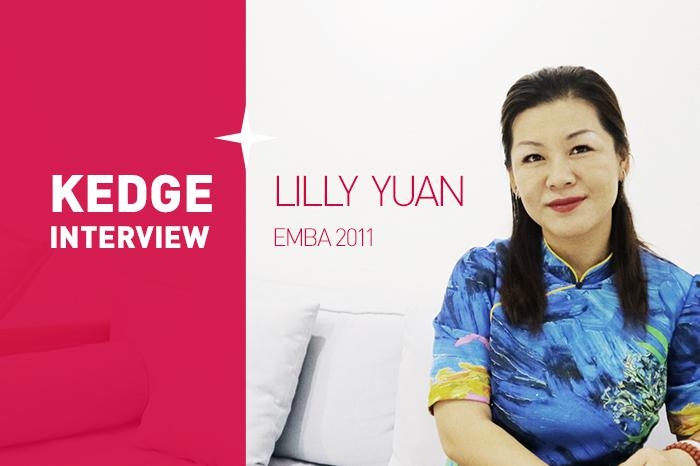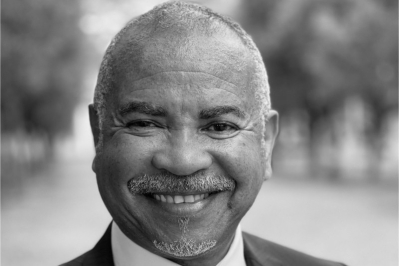News

Lilly Yuan (EMBA 2011) : A Business Woman's Road to Success
Interview of Lilly Yuan, alumna of KEDGE Business School (EMBA 2011 Intake)
In 2003, she founded a steel import and export business, whose products are now exported to Europe and Africa after 15 years of operations. After obtaining her EMBA degree, she founded Cooljogging in August 2016, a B2B sportswear company specializing in the online sales of specialized UK-made sports outfits for jogging, cycling and yoga, among others. So far, it has a sales revenue of 3 million RMB.
A Curious Learner
“In fact, I chose to attend KEDGE’s EMBA program, largely thanks to my husband’s encouragement. As a French, he often takes me around the world allowing me to experience firsthand the difference between Eastern and Western cultures”, Lilly commented about her decision to do her EMBA. “When the idea of attending an EMBA program flashed, my husband encouraged me to go for it. In order to better integrate into French culture, I chose KEDGE. Its cross-cultural teaching model and diverse case studies familiarized me with the different business models, management philosophies and styles across Eastern and the Western companies.”

* B2B sportswear - cooljogging
During her studies, Lilly was able to put together the class-taught business management concepts and her own business perceptions to form new insights. “KEDGE is a useful platform for learners to mull over these business concepts. The professors’ case analysis and class discussions allowed me to have a deeper understanding of the operational practices of different businesses: I got to know their success factors and learnt how to avoid the same mistakes that the firms used for case studies had made. Meanwhile, by exchanging ideas with classmates in and out of class enabled me to know more about different industries and functions. And that’s where the idea of starting a new business came from.”

* Lilly in cooljogging sportswear
During the interview, Lilly said she had been pondering over two questions:
1) Do traditional industries need any transformation?
2) Do they need to start new lines of business?
She mentioned an example, “We all know Kodak’s failure. When examining why it failed, we would ask ourselves how much further could an established business go if it chose to stick to old models. I had a lot of discussions with my professors and classmates about these two questions, and we talked a lot about the internet model, and the uptake of internet thinking by established businesses.” She keeps exploring the necessity of established businesses expanding their reach with the much-raved about internet thinking. Through such efforts, she’s gained some insight into the difference between traditional business models and internet-based ones.
A Keen Social Activist
Lilly takes time off her busy work schedule to take part in or organize all kinds of social activities.She is a member of the council of the Beijing Geyou Community Aid Foundation, which was founded on May 12, 2009, the day a massive earthquake shook Wenchuan in Sichuan Province. Every May, the foundation organizes a challenge trek across the Gobi Desert for students of 56 business schools across the world. EMBA students from China (including Hong Kong and Taiwan) and Singapore follow in the footsteps of Master Xuanzang of the Tang Dynasty to walk on the quick sand of the desert. In August every year, there is a pro bono hiking event for outstanding business school deans along a route that Lilly has walked on for six times as a charity ambassador.

As well as taking part in social activities, the foundation also recruits promoters and volunteers to organize charity events. Every year, it organizes volunteers to teach in Guizhou for a week or even years. The courses they teach range from nature, reading, music, PE, art to handicraft. In addition, the foundation regularly carries out programs to support the growth of schoolmasters in Beijing and Shanghai, to help promote local education.
A Strict Time Manager
Many women in employment more or less struggle to balance their personal growth and family life. Lilly believes that this problem is due to poor time management and failure of husband and wife to support each other’s growth.

Before she decided to attend the EMBA program, Lilly managed to get full support from her family. With a large number of courses to study, including case studies involving myriad industries, and a day job to do, the whole learning process was no easy task. In order to have enough time to be with her family, Lilly tried her best to manage her time well. For instance, she made sure she left office at 6:30 pm every day in order to be with her kids. On weekends, she coordinated with family members to take time off for various family activities.
In addition, Lilly said that “Doing an EMBA degree helps open up one’s horizon. However, if the wife is improving herself but the husband is doing nothing or vice versa, family life is going to be affected. So both need to work hard to seek mutual growth.”
“Time management is of vital importance,” Lilly further emphasized.
A Cool-headed Investor
Speaking of today’s entrepreneurial climate, Lilly was very level-headed. She advised against rushing into any investment without being well informed of all the necessary components for a successful business. She believes that the existing model of establishing a business structure, recruiting talent and looking for growth is not a viable strategy for success. She’s seen too many ambitious entrepreneurs who set higher goals they can possibly achieve, are too excessively obsessed with trivial issues, and burn money like there’s no tomorrow without looking at how to recoup the investment. In fact, a business needs to be well-equipped with expertise in finance, marketing and human resources to have a shot at success.
Lilly has invested in a number of businesses, at a rate of one to two per year. Next, she plans to invest in an online HR agency, a big data company and a video-streaming business. Additionally, as she is a big fan of gourmet, she wants to open a high-end Japanese restaurant.
Before making an investment, Lilly looks at three factors of a company: its core competences, availability of profitable projects, and technological competitiveness of its offerings.






